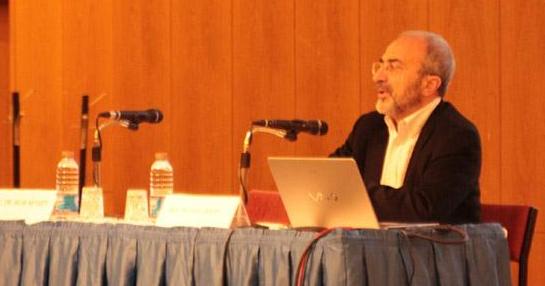Economist Fatih Özatay Outlines Turkey's Economic Prospects
Photograph by Bikem Ahıska (IR/I)
The Department of Economics recently hosted a lecture by Prof. Fatih Özatay, economist, columnist and also the author of "Monetary Economics" and "Financial Crisis and Turkey." The symposium, entitled "The Turkish Economy -- Where To," welcomed anyone interested in economics.
Prof. Özatay began his speech by outlining the current economic situation in Turkey. In this context, he noted that entrepreneurs' attitudes regarding economic issues are important, and said that what happened in the automotive sector should be analyzed to see how export growth has been affected. The Turkish economy, he suggested, is experiencing growth below its potential, with a high current account deficit feeding the need for foreign resources, and a high inflation rate compared to competitors in the export market. He pointed out that this scenario implies Turkey has a new problem, that is, a low growth rate, a high current account deficit and a high level of borrowing occurring together. Yet, Turkey's economy is still growing, especially in comparison to worldwide growth rates.
Prof. Özatay noted the importance of external factors in defining Turkey's economic performance in the near future. He foresees that the fiscal cliff problem is likely to be solved in the US and that this, along with the EU's measures for better regulation in the banking area, will contribute to an increase in the expected worldwide growth rate. In this scenario, confidence in the Turkish economy, as well as private sector investment, may increase, leading to a GDP per capita growth rate of about 4% over the next year in Turkey. Prof. Özatay concluded his talk by drawing attention to medium-term problems, such as low domestic saving rates, unregistered unemployment and the need for improving the quality of human capital.
By Yasin Babahanoğlu (ECON/IV) and Tuba Özsoy (ECON/I)
